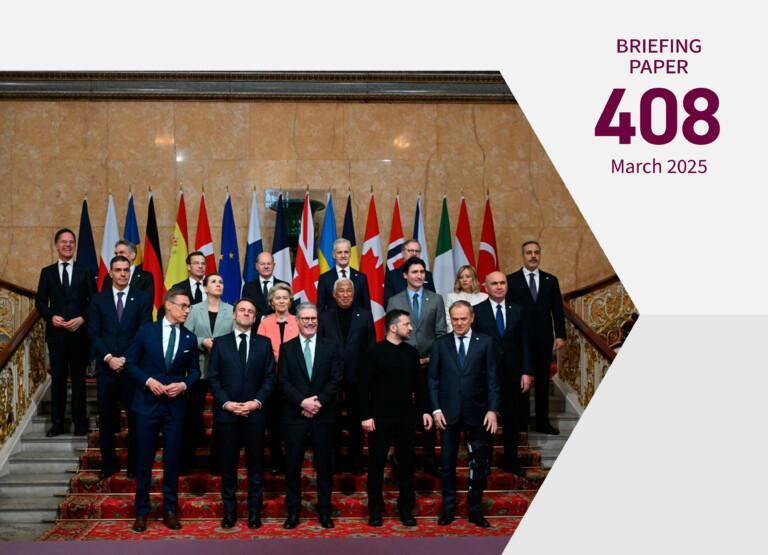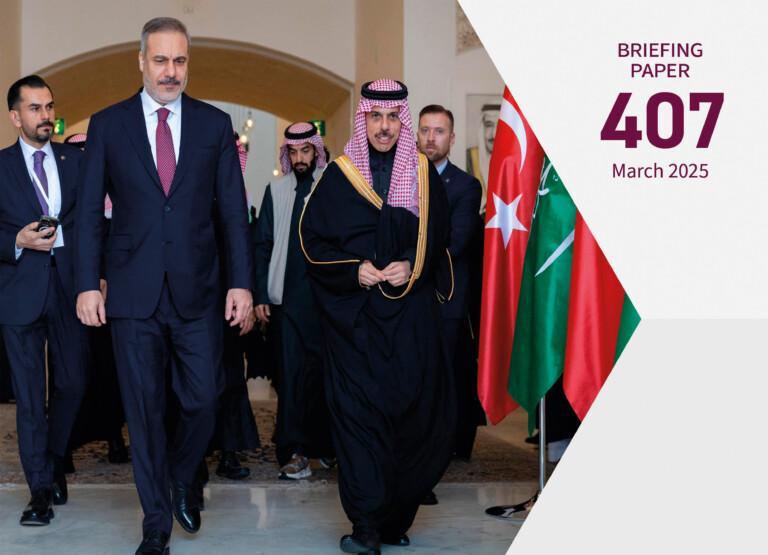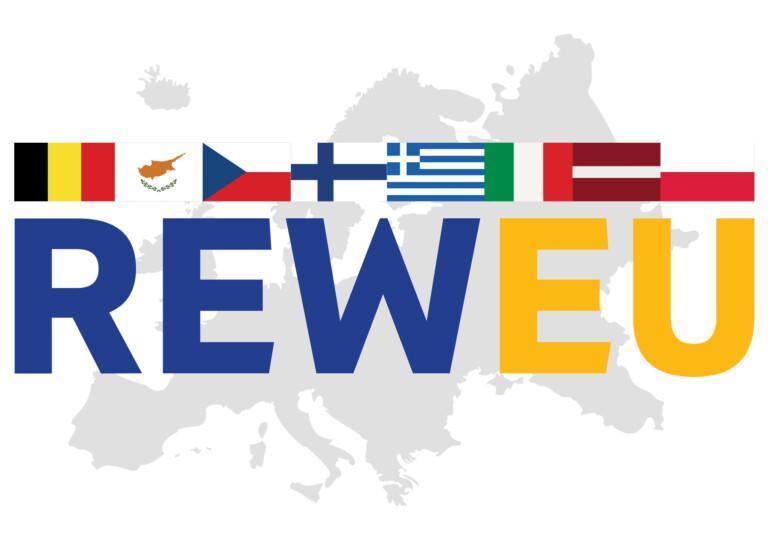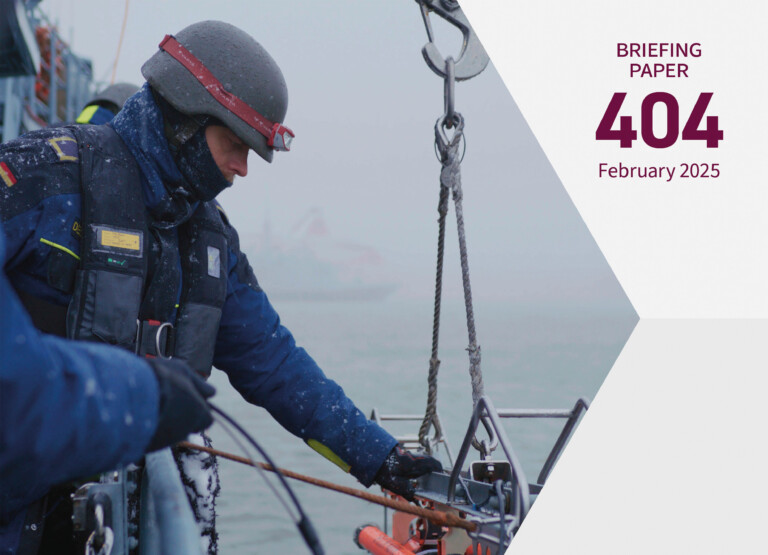
The post-Cold War European cooperative security order, based on shared liberal norms and institutions, has been challenged by Russia’s revisionism and aggression – and more recently by the alienation and even hostility of the United States.
Cooperative security has shrunk in scope to an internal European order, shaped around relations among like-minded European states. To maintain this order, Europe will need to actively defend it, not only in words but also in deeds, and even militarily as a last resort.
There is a crucial link between the fate of Ukraine and wider European security: the outcome of the war will effectively either validate or reject spheres of influence in Europe and, by extension, the basic principles on which the future of Europe is being built.
Europe’s emerging military posture should be grounded in the key norms of European cooperative security: multilateral cooperation, democratic values and international law. Europe can leverage these strengths to navigate the global context of shifting power dynamics.










